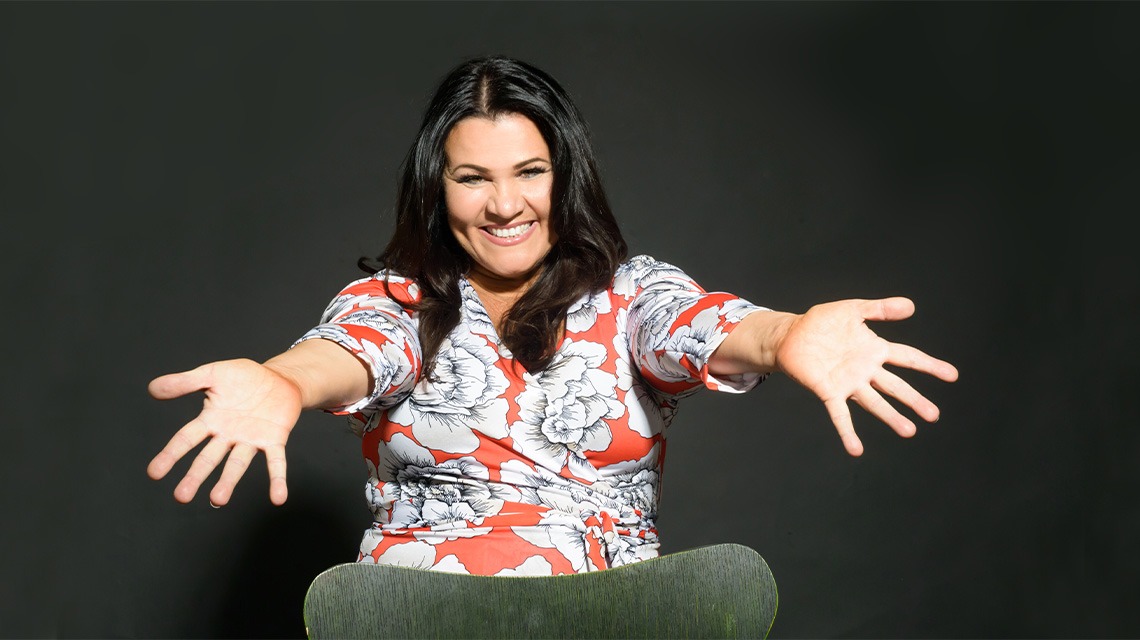Denise Soler Cox speaks to Smart Meetings about DEI
- Keynote speaker, filmmaker
- Creator of film Being Enye
As a proud Puerto Rican American, Cox identifies herself as part of the “Enye” community. While “Enye” is commonly spelled out phonetically, it refers to the pronunciation of the letter “ñ” in the Spanish alphabet and is used as an identifying moniker by first-generation Americans with parents who have immigrated from a Hispanic country. In her journey of navigating and understanding her dichotomous background, Cox has become a filmmaker, highly sought-after keynote speaker and educator on the importance of belonging in the workplace and the meetings industry.
In her film Being Enye, Cox explores the personal stories of those who identify with the Enye community and their experiences with the sense of “belonging.” Smart Meetings sat down with Cox to listen and learn more about belonging, the ways in which superiors can instill that mentality in the workplace and what meeting professionals can do to help all attendees feel comfortable and have the best experience possible at events.
For those who may not know, what is the definition of “Enye?”
Very simply put, it’s what it’s like to be first-generation Latinos in the United States. It’s just like “x and y and millennial,” it’s just a letter. It’s based on the fact that you were born here or brought here at a young age, and you have at least one parent who is an immigrant. There’s a very specific and shared experience within that group.
Read More: Hosting at Hispanic Cultural Centers
What inspired you to make the film Being Enye?
It’s the biggest question I had as a kid. Why don’t I belong? So, I asked myself and suffered and struggled with that question. Then I made this film and made a whole bunch of people inadvertently feel like they belong. I guess the purpose was to let people know they’re not alone. And ’m willing to take the rest of my life to make sure that happens.
What made you become a keynote speaker?
It was by invitation. It was not part of my plan. I spent 17 years trying to get [Being Enye] made. I did not think at all about life after that film. The only reason I speak so much is because I’m invited. I do no advertising; it just continues to grow and grow. Now I love it. I see the impact of it and I see just how important the work is. It’s so far beyond how I feel about my speaking career. It’s very much mission-based and connected to the aspirational goal of everyone feeling like they belong.
What can employers do to ensure the conversation of belonging continues in the workplace?
Just in the business case, shying away from [belonging] could cost the company millions of dollars. That is why there are some amazing companies right now, some of whom are my clients, who are focused on [belonging] and making incredible strides. It’s deeply inspiring for me to see that brands are grabbing hold of this, because—you have to care about humans, right?
“It’s deeply inspiring for me to see that brands are grabbing hold of this, because—you have to care about humans, right?”
What do you want to say about DEI for readers and meeting professionals who are committed to making improvements and increasing a universal sense of belonging?
It’s simple, but it’s not easy. You can measure belonging, but it’s so temporal. So, it’s managed. It has to be constantly paid attention to. I’m actually working on a book of a top10 list event planners can refer to so they can create belonging at their events. How do we make sure we’re bringing people together? How do we create an environment where people who are there alone feel like they belong?
There’s a lot of intellectualizing about belonging, like navel-gazing kind of activities. But tactically, how do we get everybody here? And the thing is, it has to be a diverse group of people. Having the most diverse group of people in sexual orientation, gender identification, children of immigrants, educational and socioeconomic level, ethnicity, etc. And (for event planners), if he or she doesn’t fall into one of those roles, the question becomes how are you accessing this information?
This article appears in the December 2023 issue. You can subscribe to the magazine here.




